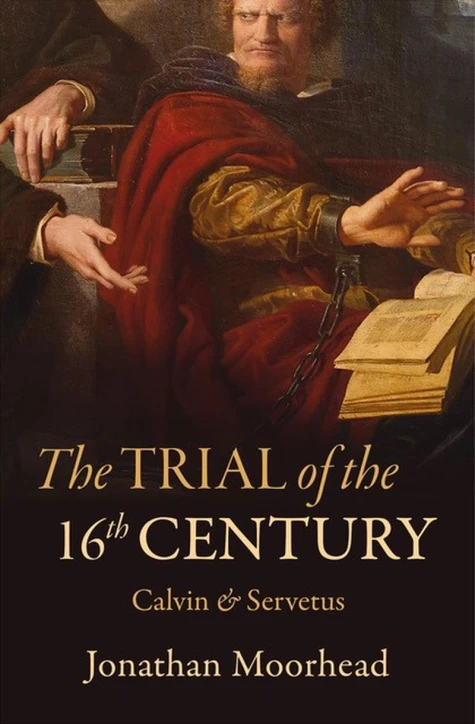Did John Calvin murder Michael Servetus?


“Did John Calvin murder Michael Servetus?” Questions like this swirl around Calvin’s involvement in the trial, judgment, and execution of Servetus in 1553.
Unlike other trials, the case of Calvin and Servetus is compounded by the often–emotional topic of Calvinism. As a hero or villain in church history, one is likely to read the evidence tainted by a desire to defend or vilify Calvin.
While strict objectivity in the writing of history is impossible, an attempt at neutrality exonerates Calvin in most of the accusations against him, but also does not leave him blameless.
While a fuller summary list of the evidence may be found in the book, The Trial of the 16th Century: Calvin & Servetus, below are some facts that are helpful to consider while evaluating if Calvin should be singled out for his role in Servetus’ trial:
1. Throughout the history of the church, execution for obstinate heresy was supported and practiced by Protestants (Lutherans, Reformed, Anglicans, Anabaptist factions, and Protestant confessions), Catholics, and Orthodox. With most reformed theologians of his time, Calvin supported the death penalty for unrepentant heresy.
2. At a time when Protestants were being burned alive for their faith, Calvin risked his life by being willing to publicly meet Servetus in Paris in order to convince him of his error, but Servetus did not keep the appointment.
3. Servetus was arrested by Catholics in Vienne and sentenced to death by burning. Although Servetus escaped before the sentence could be carried out, he was burned in effigy, in absentia.
4. Following heated correspondence with Servetus, Calvin wrote a letter to a friend, which threatened Servetus with death if he came to Geneva. The same day he wrote another letter expressing the joy he would have if God worked repentance in Servetus. These letters are to be interpreted by understanding the limited extent of Calvin’s authority in Geneva.
5. Although Calvin knew Servetus’ true identity, he did not pursue his arrest by reporting him to the authorities, nor did he entice him to Geneva to entrap him. Calvin was also hesitant to send incriminating evidence to the Catholics trying Servetus, preferring to fight heretics with doctrine.
6. Calvin was a foreigner and not a resident of Geneva. During the Servetus trial, Calvin had no authority to vote or hold office.
7. The magistrates of Geneva were largely opposed to Calvin’s ministry during the trial of Servetus. Barring his expulsion from Geneva in 1538, Calvin never had such minimal authority as he did during Servetus’ trial. This is made evident by his offers to resign during the trial, in his conviction that he would be fired from his pastorate during this time, and in his farewell sermon. Calvin could not even effect the manner of Servetus’ execution.
8. During the trial of Servetus, the Swiss cities of Basel, Bern, Zurich and Schaffhausen agreed that the threat of Servetus should be eliminated.
9. Considering that anti–trinitarians were present in Geneva before and after Servetus, but were not killed, the deciding facts behind Servetus’ execution are: Servetus was condemned and burned in effigy in Vienne, Catholics pressured Geneva to extradite Servetus, other Reformed cities ruled Servetus was guilty, there was an awareness that the purity of Protestantism was being tested, and there were concerns that the Imperial army would have grounds for attacking the city if Geneva did not uphold Imperial law.
10. Servetus’ conduct during the trial (and through his life) has caused some to question his mental state. He demanded that Calvin be exterminated and that all of Calvin’s property be given to himself. Servetus’ attacks against the magistrates and the pastors during the trial are thought to be another strong reason why he was executed. Considering Servetus is largely thought of as a champion of toleration and freedom of conscience, it is helpful to note that he supported execution for obstinate heresy, that he believed in the exclusivity of His view of God, and that wrote that all tyrants of the church should be destroyed.
11. Following attacks on the execution of Servetus, Calvin wrote, Defense of the Orthodox Faith against the Monstrous Errors of the Spaniard Michael Servetus. In this work and subsequent letters, Calvin defends Servetus’ execution by the magistrates and indicates satisfaction concerning his involvement in Servetus’ death. This doubling down and insensitivity by Calvin is rightly criticized by his supporters.
12. Leading Protestant leaders of the time such as Bucer, Bullinger, Beza, Knox, Peter Martyr Vermigli, and Melanchthon all agreed that Servetus should be and was rightly executed. Considering that other Reformation luminaries such as Zwingli, Cranmer, and Queen Elizabeth I were directly involved in executions for heresy, it is problematic to indict Calvin for his involvement in Servetus’ execution while ignoring the activity of his fellow reformers.
The story of Calvin and Servetus is a fascinating account that involves the excellencies of theology, the complexities of politics, and the intricacies of judging history without anachronism. As you read the personal stories of these men in the setting of the 16th century, giving attention to the context and theology of execution, the complex political situation in Geneva, and sympathizing with the struggles of pastoral ministry, it should be our chief end to read this story to glorify God by honoring and emulating our forefathers’ faithfulness, recognizing and learning from their shortcomings, and always looking to the perfect hero of our faith, the Lord Jesus Christ, and to the authority of His Word for faith and practice.
